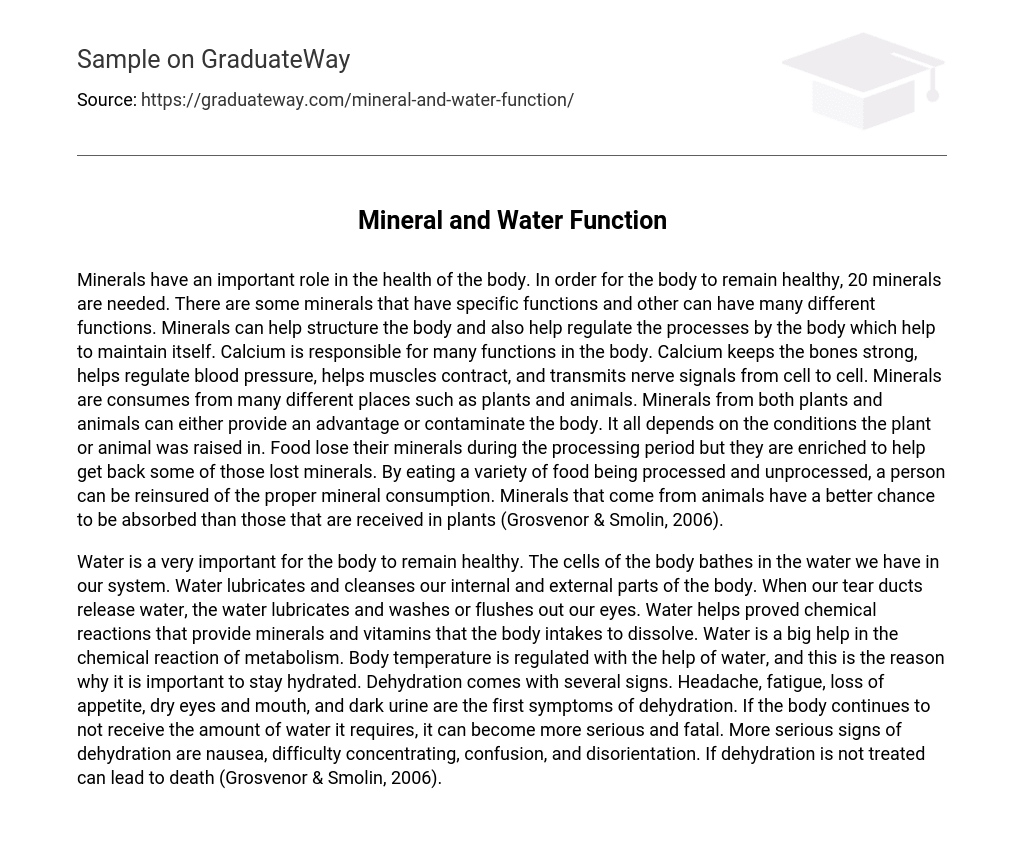The body requires a total of 20 minerals to maintain its health. While some minerals have specific functions, others have multiple roles and contribute to body structure and regulate bodily processes. Calcium, for instance, is a mineral that performs various functions including preserving bone strength, controlling blood pressure, facilitating muscle contractions, and transmitting nerve signals. Minerals can be obtained from plants and animals, which can either benefit or contaminate the body depending on their source conditions. During food processing, some minerals may be lost but are often replenished to restore depleted levels. To ensure adequate mineral intake, it is important to consume a variety of both processed and unprocessed foods. Animal-derived minerals generally have higher absorption rates compared to plant-derived minerals (Grosvenor & Smolin, 2006).
Water is vital for maintaining overall bodily health. It has various functions, such as bathing cells and cleansing both inner and outer body parts. For example, tears moisturize and cleanse the eyes. Water also aids in chemical reactions involving minerals and vitamins while playing a critical role in metabolism. Additionally, it helps regulate body temperature, highlighting the importance of staying hydrated. Symptoms like headaches, fatigue, decreased appetite, dry eyes and mouth, and dark urine can indicate dehydration. If not addressed promptly, dehydration can worsen and lead to more severe consequences like nausea, difficulty concentrating, confusion, disorientation or even death (Grosvenor & Smolin , 2006).





